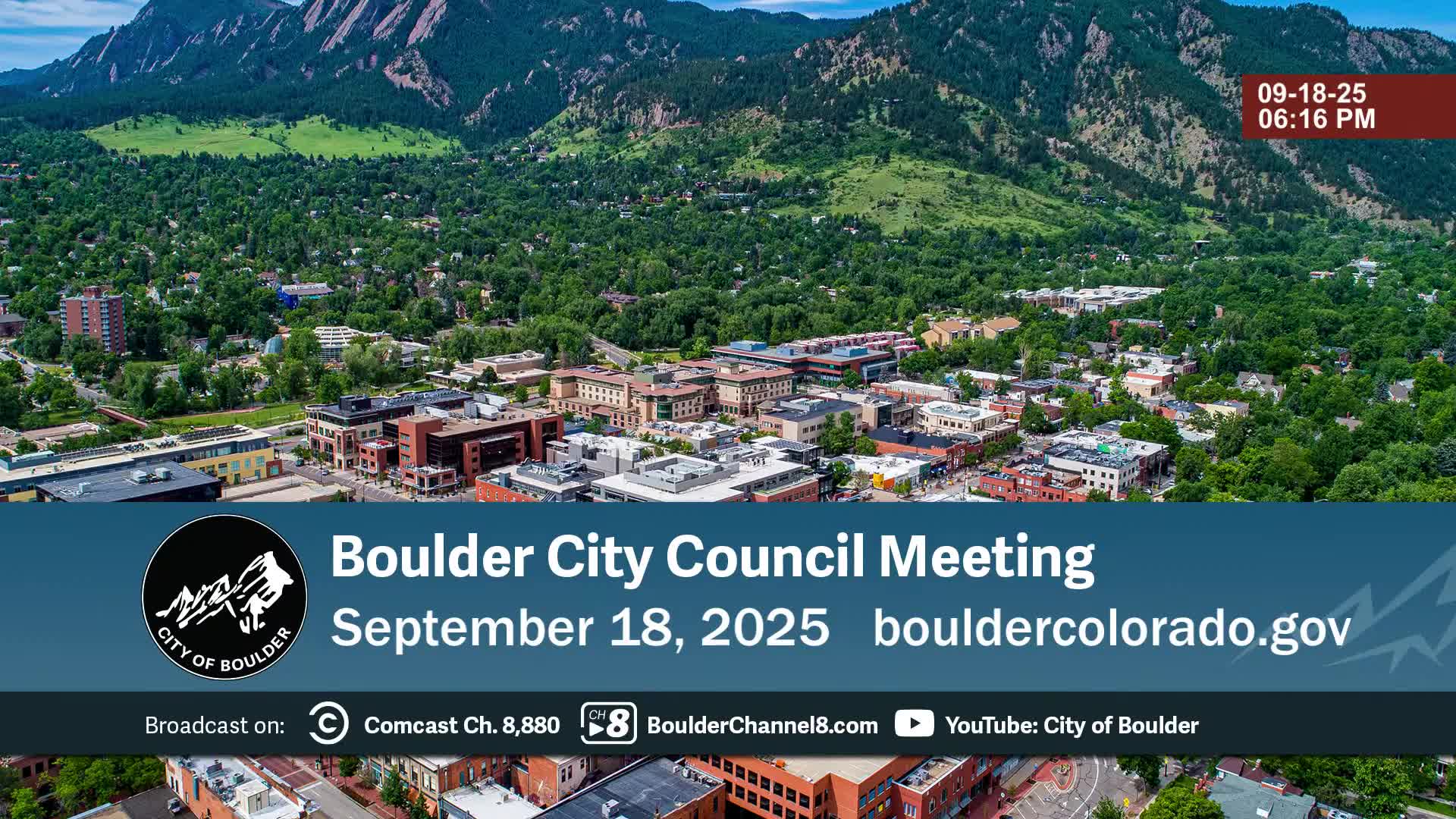Article not found
This article is no longer available. But don't worry—we've gathered other articles that discuss the same topic.
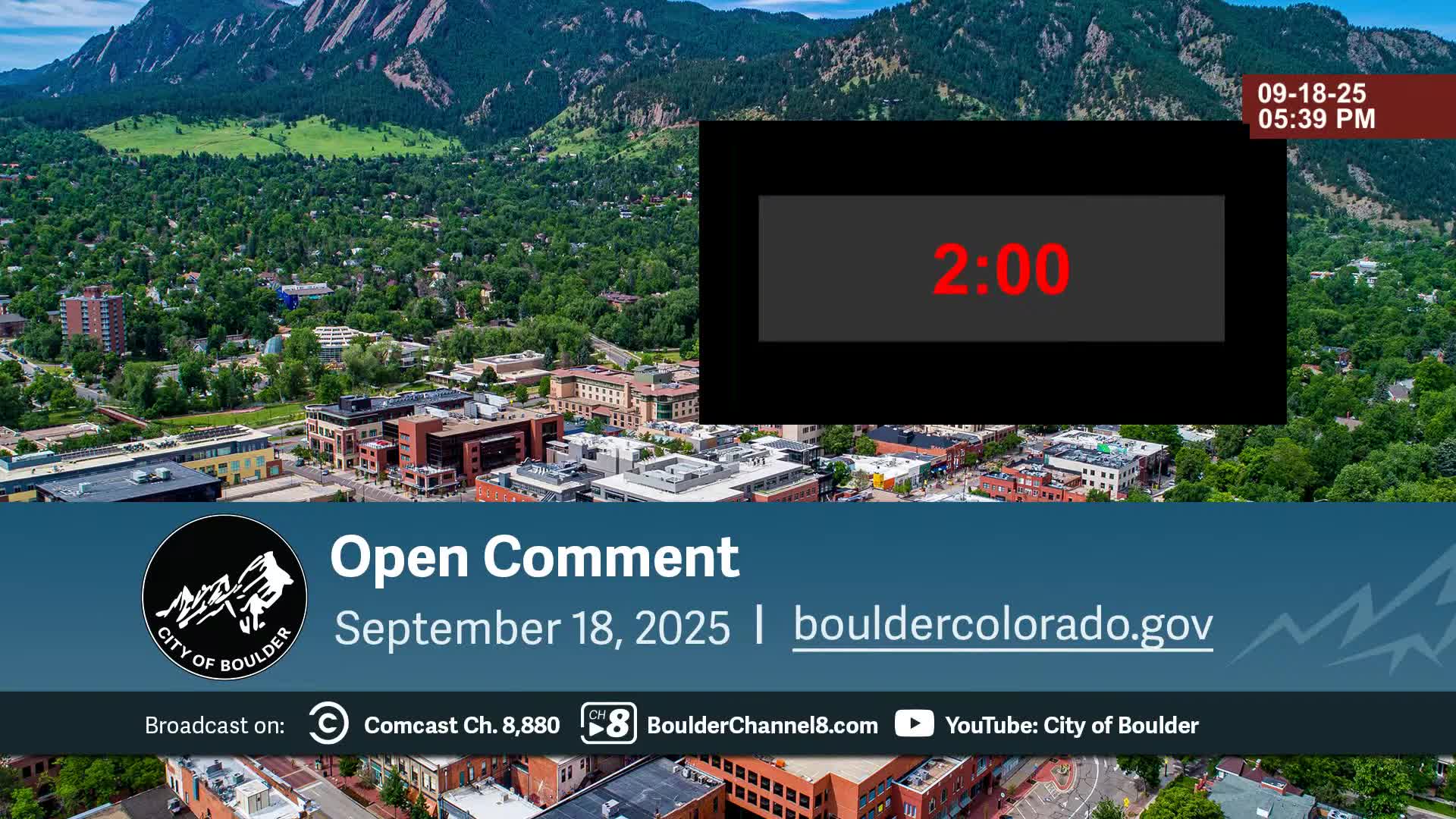
Residents press Boulder council to divest from companies tied to Gaza hostilities; councilors note UN findings and public concern
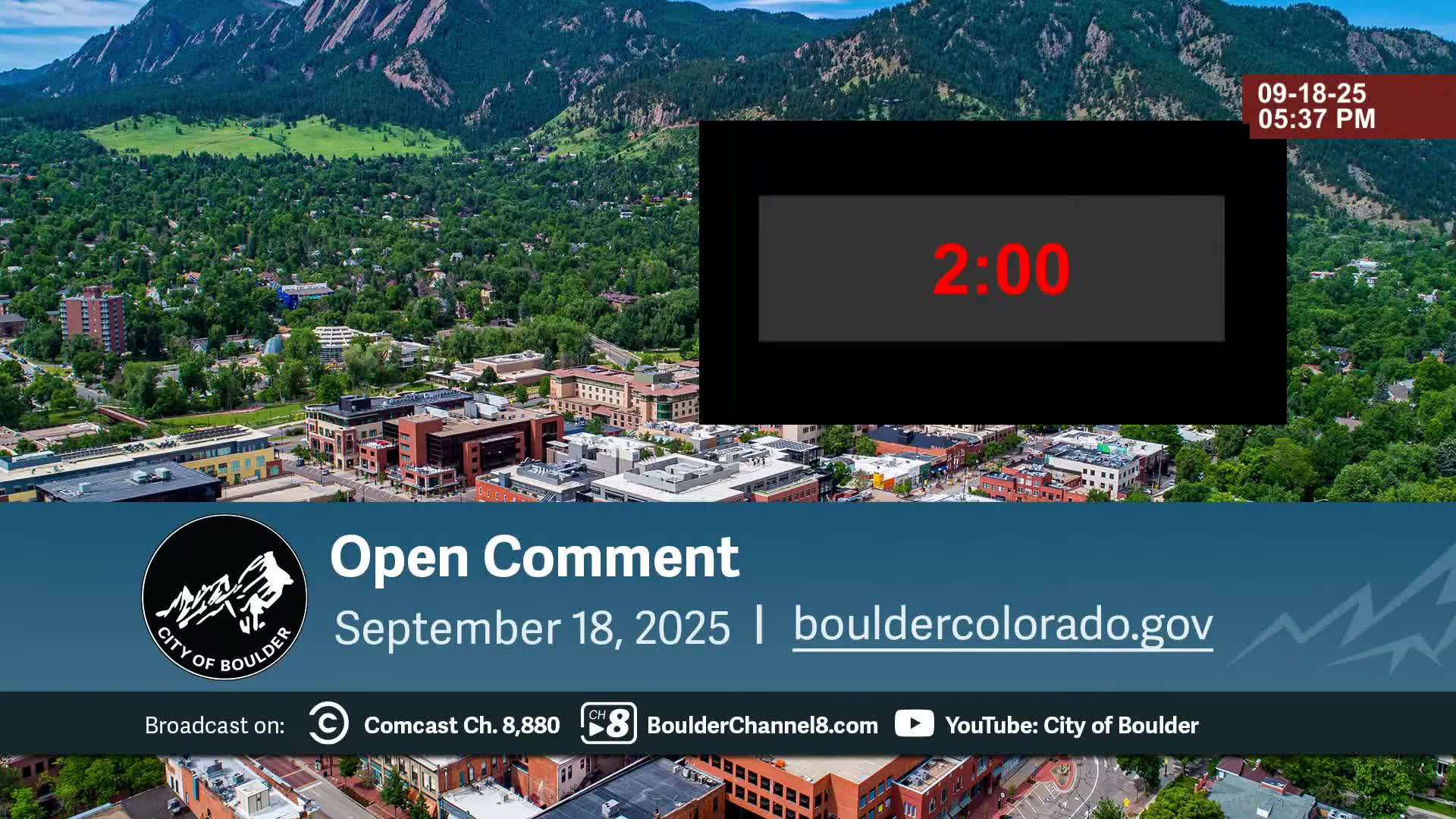
Parent urges council to ban armed demonstrations near playgrounds after gun-toting marcher at North Boulder Park
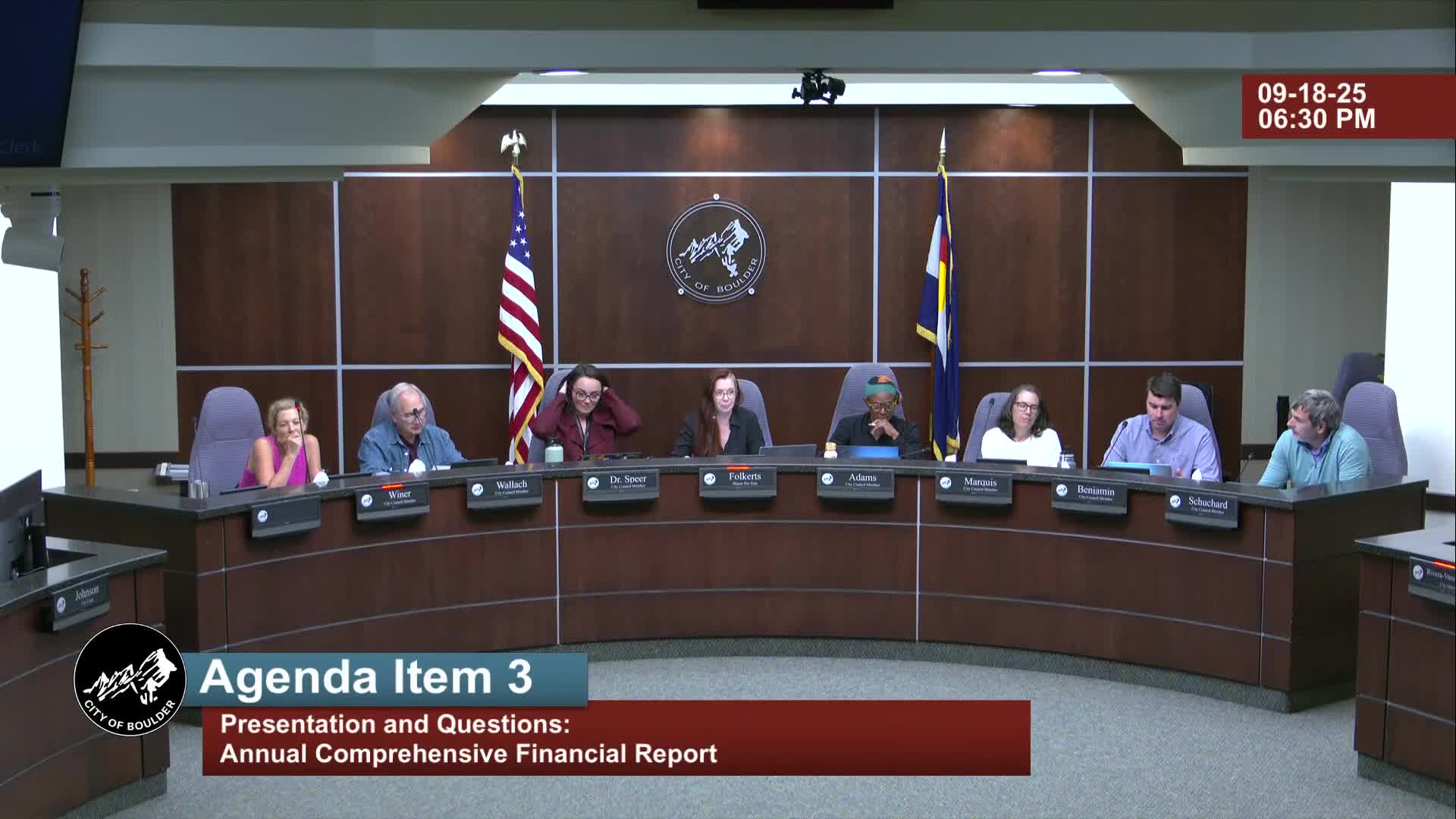
City audit gives clean opinion but flags reporting error on federal grants
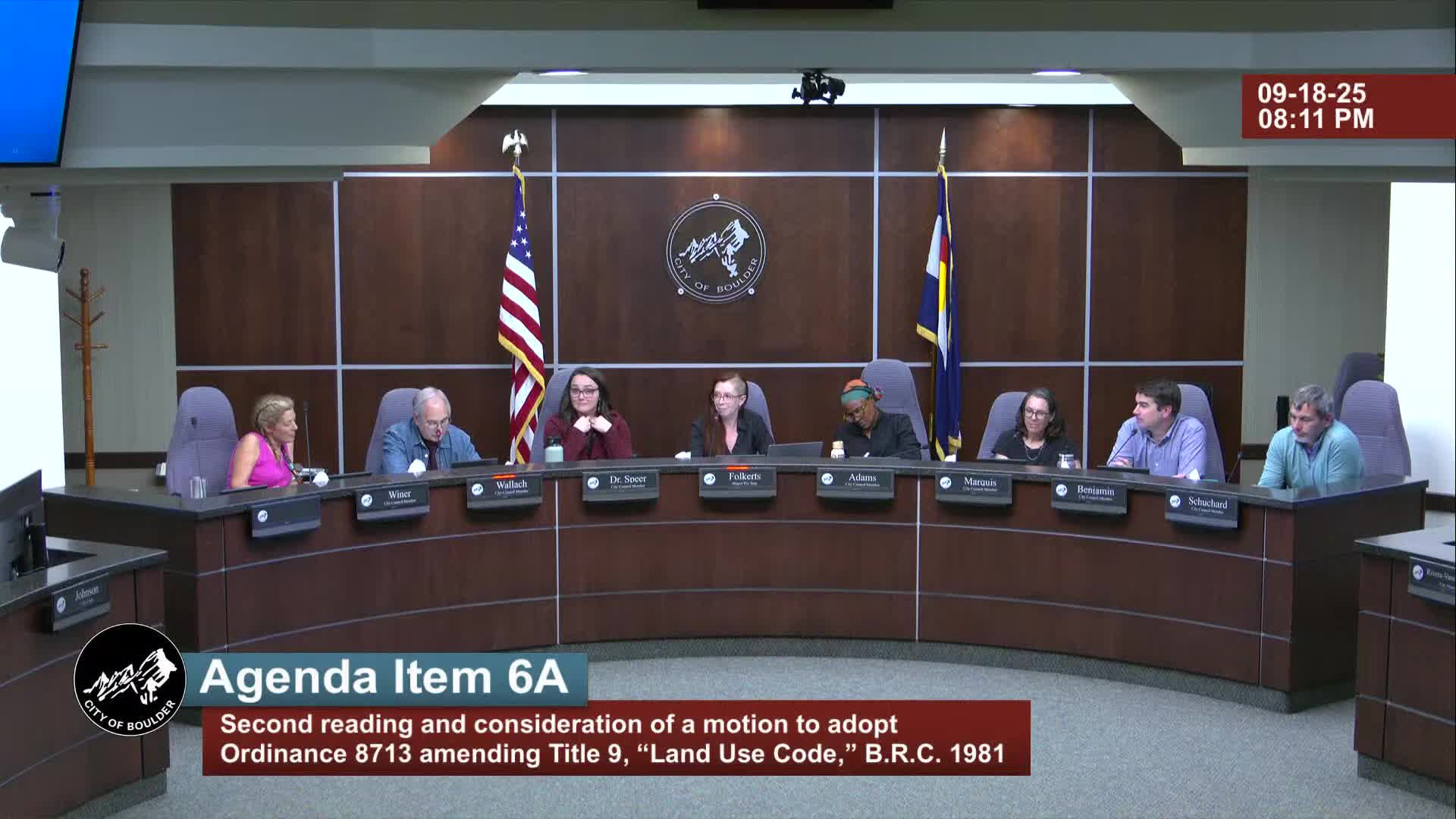
Council approves festival lodging license for large events, including Sundance visit
